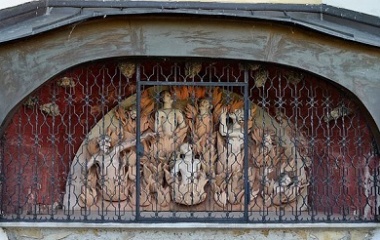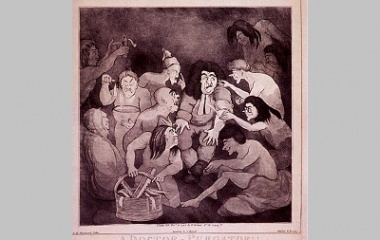Many religions speak of the unspeakable horrors and pain of hell, or the eternal divine state of heaven, but in certain belief systems, a third, temporary state exists where one’s souls is purified by fire, before it is ready to enter paradise.
What Is Purgatory?
Purgatory comes from the Latin word purgare, meaning “to purge”. In the context of the old Christian and Roman Catholic Church, purgatory is a waiting place where souls are purified before entering heaven. Two versions of purgatory may exist, according to some authors. In one model, humans must be punished for their sins in order for divine justice to be satisfied. The other model focuses on the purification of the soul before it enters heaven.
Origin
The concept of purgatory appears in pre-Christian sources, both religious and non-religious, according to sources. Plato mentions the concept in Phaedo, a dialogue which influenced numerous ancient philosophers. Though the official doctrine was only accepted into the Roman Catholic Church in 1274, early practices, predating Jesus Christ, such as people praying for the dead, perhaps inferred the belief in purgatory. Authors claim people would pray for the dead in order to help them with their purification in the afterlife. Early Christian theologian Hippolytus of Rome (170 – 235 AD) mentions punishments for the dead that are temporary and aligned to the degree of sin committed.
Catholicism
The concept of purgatory, or an intermediary state after death, is evident in many religions other than Christianity. Perhaps we want to know that if we have lived neither a saintly life, nor one of continual, heinous sin, there is a way to heal the burdens we’ve accumulated through our lifetime. The Roman Catholic Church is one of the main proponents of the concept of purgatory. The Church refers to three main parts of the concept occurring in the bible, namely prayer for the dead, a stage after death and before resurrection, and a fire which purifies the dead. Catholics believe purgatory is the purification of the souls who are not pure enough yet to enter heaven. Souls that are pure enough progress straight to heaven, while others, who bear hatred towards God, are sent to hell.
A differentiation is made between two types of sin which affect one’s experiences after death. Mortal sin, such as murder, adultery and contraception, are defined as acts that will land a person in hell, unless they seek forgiveness for these sins. Venial sin is explained as a lesser sin. If a person does not seek forgiveness for a venial sin, they are not automatically dammed to hell. Examples of venial sin include not trusting God, thoughtless cursing, vanity etc. One would receive temporal punishment for lesser or venial sins. This temporal punishment would occur in purgatory. In this transitory stage, according to theologians, one will experience pain in the cleansing process, through fire. It is an accepted belief that the pain will be physical.
Along with prayers for the dead, Catholics also use indulgences to lessen the degree of purgatory for themselves or for someone already dead. The granting of indulgences became a contentious point over time, however, as it became associated with money, which led to alleged abuses of the practice. In early Christianity, purgatory, heaven and hell were sometimes conceived of as a physical place, but no church doctrine backs up this ancient belief.
Protestantism
Protestants, for the most part, reject the concept of purgatory. One of their core tenants leads to the exclusion of certain books of the bible which mention purgatory. They believe that faith is the determining factor in one’s afterlife. If one has faith and is saved, then one can access heaven. Those who are not saved will be sent to hell, according to experts on Christianity. According to Anglican bishop John Henry Hobart a person passes into an intermediary state after death, until the resurrection. This state is referred to as Hades and is divided into Paradise and Gehenna, a transitory version of hell.
Buddhism
In Buddhism, there are more than two destinations – like heaven and hell – after death. It is said that after a person dies, they are reborn into a temporary state, based on their karma, until their next rebirth. They may be sent to one of six realms: heavenly, demi-god, human, animal, ghosts or hellish. The heavenly realm is also not the final destination in Buddhism, but rather a state called Nirvana. Followers are not judged when they die, and sent to purgatory, but rather determine their own destiny or next realm through their own actions or karma.
Being freed of sins through a cleansing fire or having the spiritual scales balanced, as preparation for an eternity in paradise, seems equitable, but with little proof of the exact nature of the afterlife available, perhaps we are already in purgatory, heaven or hell!










